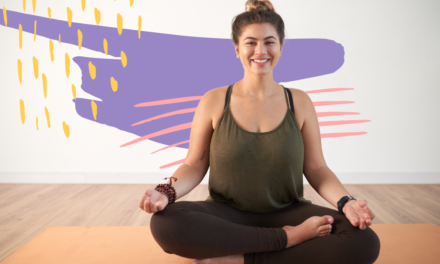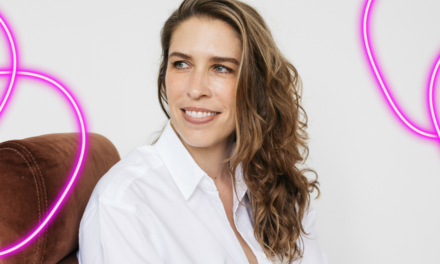I carefully put on my knee-length winter coat and warm winter snow boots. My roommate was fast asleep as I slipped out of our studio apartment in Brooklyn and traipsed into the freezing November night. It was almost 12am, and I was still a couple thousand steps away from my daily goal of ten thousand steps. As I walked the familiar Brooklyn sidewalks, I obsessively watched my fitness tracker. Slowly but surely, the number went up with each step I took. The cold New York City wind whipped against my face, and I sighed with relief as the screen finally flashed “10,000”—the magic number I needed before I allowed myself to go back inside. I was exhausted, I was freezing, and I was obsessed.
A study released by Pew Research near the beginning of 2020 revealed that about one fifth of adults in the United States regularly wear a fitness tracker. Many sources, including Johns Hopkins, laud the potential health benefits associated with regular use of fitness trackers. However, what often doesn’t get shared are the potential pitfalls that fitness trackers can pose to those of us who may have tendencies to unhealthily fixate on food, weight, or exercise. Health is not just physical: it’s also emotional and mental. As much as we’re told that fitness trackers may improve our lives and make us healthier, the truth is that for many of us they may increase obsessive thoughts and unhealthy behaviors.
How can you know if a fitness tracker will be helpful or harmful for you?
Much if this depends on where you’re at in your relationship with your body, food, and exercise. Do you struggle with disordered eating or compulsive exercise habits? If you’re in disordered eating recovery like I was, these are especially important questions you need to ask yourself, and it may even benefit you to have a discussion with a healthcare provider or therapist, or at least a trusted family member or friend. My go-to answer for someone who deals with or is in recovery from restriction, anorexia, bulimia, over-exercising, or other disordered eating or exercise behaviors is always to stay away from fitness trackers. You don’t need another number to track in your life right now, especially if the fitness tracker includes a calories-burned tracker—stay away!
I’m definitely not anti-fitness tracker, but I do think that it’s important to realize that although they can be healthy for a large majority of the population there’s a small percentage of people that will experience more harm than benefit from using these devices. Even people with more of a “Type A” personality, who can too easily become fixated on meeting goals at the expense of their overall well-being, should consider whether or not a fitness tracker would be truly beneficial.
Ultimately, fitness trackers are just tools.
A pair of scissors is also a tool, and depending on how you use them they can be very helpful or cause a lot of damage. The key question to consider when deciding whether or not to use a fitness tracker is really the key question we should always ask ourselves when we pursue health goals: is this truly going to help me, or is it going to make me more obsessed with my weight, what I’m eating, or what I look like?
Constance Rhodes of Finding Balance has a fantastic quote that goes something like, “We want to find the middle ground between obsessiveness and carelessness.” I know quite a few women who have great relationships with their fitness trackers, without any obsessiveness. Their fitness trackers even add value to their lives, because they help them to be more mindful and less careless about their daily habits, allowing them to better care for their bodies and minds. For me, however, fitness trackers were not helpful and held a very unhealthy place in my life for several years. Forcing myself to take walks alone on cold winter nights to meet my step goal, after an already exhausting day, was not a healthy lifestyle. When I finally went through much-needed healing from obsessive eating and exercising habits, I took several years off from using any sort of fitness tracking device.
This past year, when our insurance provider offered a program where we could get points and discounts by tracking our steps each day, I carefully decided to give it a try. I got some points for the regular everyday steps I took, but I barely ever looked at the fitness tracker watch. I just didn’t really care, because this time I was letting the fitness tracker fit into my life, instead of fitting my life around the fitness tracker. My experience with the tracker this time was super laid-back, and I appreciate the positive experience I had. It helped me see how all the healing I experienced affected parts of my life that I wasn’t aware of. We’ve since switched insurance providers, and I choose not to wear my fitness tracker anymore. I prefer to approach movement more intuitively now and wearing a fitness tracker feels more like a nuisance than anything else.
Fitness trackers can certainly fit into a healthy lifestyle, but they’re not for everyone.
If you find yourself a little too fixated on your fitness tracker, consider taking a few days or weeks off from using it. Maybe you’ll even decide you don’t need it in your life anymore. If you’re considering getting a fitness tracker, I encourage you to think about the questions I’ve posed above and truly be honest with yourself. Health is so much more than what we do with our physical bodies. The best thing you can do to be healthy and take care of yourself is to pursue a balanced approach that is neither careless nor obsessive.

Rachel lives in Cincinnati, OH with her amazing husband, adorable dog, and mischievous rescue cat. After her own five-year battle with disordered eating and exercise addiction, she’s passionate about seeing other women find freedom from eating disorders, and re-discover their identity and God-given beauty. She works for a tech startup by day, and in her free time enjoys spending time with her husband, reading about natural health and beauty, and researching and writing about holistic eating disorder recovery. You can find her at freetoliveblog.com and on Instagram at @rachel.helenn
Let’s talk about it! What does “balance” mean to you when it comes to health?




